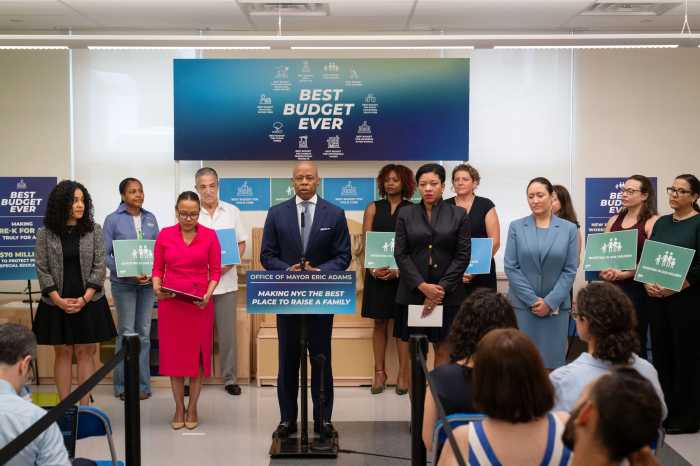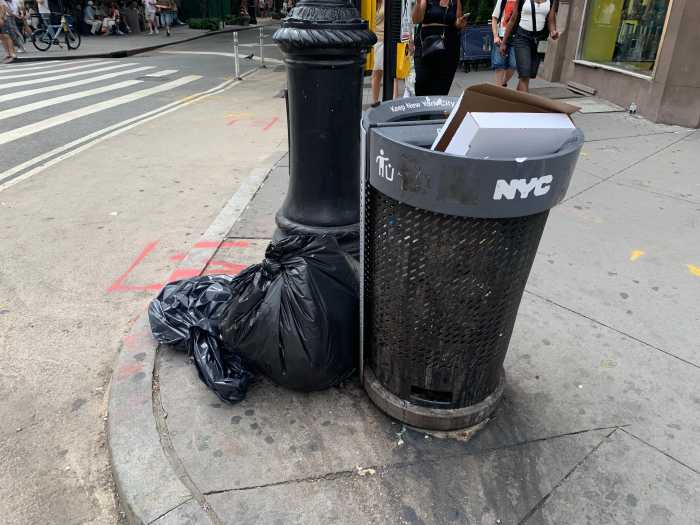Zaidan is like a lot of fifth graders. He loves cars. He spends time with his friends after school. As his mother Unique can attest, he’s a happy, healthy kid finding his way in the heart of the Bronx.
But Zaidan has more than that in common with kids his age. Like many of his peers, he also has a lot of trouble reading. And instead of making up ground last year, when he returned to the classroom after the COVID-19 pandemic, he still isn’t reading at grade level.
Unique’s son is more than just a number. The trend he represents, though, is shocking – and it’s the crisis of our time. More than half of New York City students in grades 3-8 are not reading at grade level. And like every crisis, it hasn’t impacted everyone equally. Thirty-three percent of white students have fallen behind like Zaidan has. For his Hispanic peers, though, the number rises to 63 percent. Black students like Zaidan struggle even more; 64 percent are reading behind their grade level.
Parents like Unique, advocates and educators like Crystal, and New Yorkers everywhere agree: the status quo has failed our children. It’s time for a new approach.
Luckily, Mayor Adams’ administration has committed to trying something new. This spring, Chancellor David Banks announced New York City Reads, a citywide initiative to get kids like Zaidan back on track. The campaign rethinks how reading will be taught and recommits our public schools to their primary mission: giving every student the core skills they need to succeed.
Crystal, who taught in a Bronx public school and now runs StudentsFirst New York, an advocacy group, knows how much starts with curriculum. With the right instruction, kids will become confident readers. Confident readers become confident learners. And confident learners put themselves on the path to graduation and success in whatever comes afterward.
For years, New York City’s curriculum tried to cultivate a love of reading before giving students the tools they needed to find that love. As Chancellor Banks has pointed out, that’s “kind of like building a house by starting from the second floor.” What Zaidan – and Crystal’s old students – needed most wasn’t an extra dose of enthusiasm. Rather, they needed the simple mechanics necessary to make reading less intimidating. Enthusiasm comes after competence, not before.
We’re not here to pick a fight with those who still favor the old approach. Plenty of school leaders still do, and they have their reasons. But we believe they are still operating with a pre-pandemic mindset.
It’s nearly impossible to fully describe the impact the COVID-19 pandemic had on young students. What is clear, though, is that kids who were doing well started falling behind. And kids who were already behind started really struggling. Unique has done her part, and then some – she makes Zaidan flash cards at home, and she actively encourages him to read everything he can. But when nearly two-thirds of Black and Hispanic kids in our city are reading below grade level, it’s clear that supportive parenting alone is not enough. It’s time to try something different.
Focusing on the fundamentals isn’t a new experiment. This kind of instruction has long been the reality in New York City’s charter schools, where students have regularly outperformed their district school peers. Crystal’s own son, a charter student since kindergarten, is one example. His literacy curriculum since has been grounded in the science of reading – just like New York City Reads will be. The consistent, high-quality curricula in charters should be a model for NYC Public Schools. It’s good for parents, educators and students.
Chancellor Banks understands that every kid deserves the same strong foundation. And he knows that tackling this problem will make the next generation of New Yorkers safer, healthier, and more active citizens. Letting the status quo fester could risk leaving Zaidan and his peers behind. They deserve better.
Unique learned about New York City Reads when it was announced last spring. Now, she’s more optimistic than ever that her son will start receiving the instruction he needs to catch up. This school year is just a few weeks old, but the early signs are encouraging. He’s on the right track to finish this year a more confident reader and a more dynamic learner than he started it. We wish the same for every student in our city. There’s no more time to lose.
Unique Jackson is a mother of two living in The Bronx. Crystal McQueen-Taylor is the Executive Director of StudentsFirst New York.






































